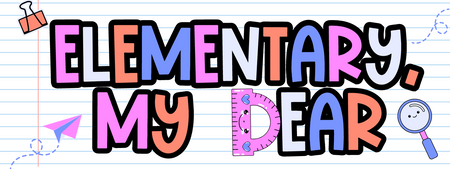
Giftedness is often misunderstood, both by adults and children alike. When we talk about gifted children, many envision students who excel effortlessly in academics or have extraordinary talents. While that’s true for some, being gifted is much broader and nuanced. As educators, parents, and caregivers, one of the most important lessons we can teach children—especially those who are gifted—is what it truly means to be gifted. Through understanding themselves better, they can grow with confidence, curiosity, and resilience. Here's how to approach this conversation:
1. Giftedness is More Than Being Smart
A critical point to emphasize when teaching children about giftedness is that it’s not just about being "smarter" than others. Giftedness encompasses a wide range of characteristics, such as creativity, problem-solving, leadership, empathy, and a heightened sensitivity to their environment. Gifted students may excel in one area while struggling in others. Helping children understand that giftedness doesn't always look like straight A's is key to avoiding self-doubt.
Activity:** Create a "giftedness wheel" that highlights various traits, such as imagination, empathy, determination, or leadership. Ask kids to identify where their strengths lie, reinforcing the idea that everyone has a unique gift to offer.
2. Encourage a Growth Mindset
Many gifted students grow up believing they should excel without effort, leading to a fear of failure or struggle. By teaching kids about the power of a growth mindset, they learn that being gifted doesn't mean everything comes easily. Struggle, persistence, and even failure are part of the process.
Activity: Use examples of famous failures, like Einstein or Steve Jobs, to show that everyone encounters obstacles. Encourage students to share a time they struggled with something and how they grew from the experience.
3. Giftedness Can Feel Isolating, and That's Okay
Many gifted children feel different from their peers, which can lead to isolation or a desire to hide their talents. It’s important to create a space where they can explore these feelings without shame. Acknowledge that it’s normal to feel out of place but emphasize that diversity in thinking and ability is a strength, not something to hide.
Activity: Implement a “Magnificent Me” project where students explore and present their unique gifts, skills, and interests. They can create a presentation, write a poem, or make artwork to showcase how they see their giftedness as part of their identity.
4. Foster Emotional Intelligence
Gifted students often experience intense emotions or sensitivities that can be overwhelming. Teach kids that giftedness includes emotional depth and sensitivity. Help them understand that it's okay to feel things strongly, and provide them with tools to manage these feelings productively.
Activity: Introduce mindfulness exercises or journaling to help students reflect on their emotions. This can be especially beneficial for developing emotional regulation skills.
5. Giftedness is a Journey, Not a Destination
Many children, when first learning about their giftedness, may think of it as something to achieve or prove. But giftedness is an evolving journey, a lifelong exploration of one’s potential. There will always be new challenges and areas to grow, and that’s something to celebrate, not fear.
Activity: Set personal and academic goals with students, both short-term and long-term. This not only helps students understand the process of growth but also reinforces that giftedness is an ongoing journey rather than a fixed trait.
6. Create a Community of Learners
Finally, one of the most valuable lessons is teaching children that they’re not alone in their giftedness. Whether in a classroom, through enrichment programs, or online communities, students benefit from connecting with peers who share similar experiences.
Activity: Create a small group or club for gifted students where they can share their ideas, passions, and challenges. Encourage collaboration on creative projects or problem-solving activities, allowing them to learn from each other and grow together.
Teaching kids what it means to be gifted is about more than academics; it's about empowering them to embrace their unique strengths, navigate their challenges, and understand their place in the world. When we help children understand that giftedness is part of what makes them magnificent, we set them on a path toward self-awareness, resilience, and success—inside and outside the classroom.
About the Author
Michelle Courtney is an experienced educator and the founder of "Elementary, My Dear," where she creates resources for gifted students and educators. As a National Board Certified Teacher and an advocate for gifted education, Michelle is passionate about helping children discover and develop their unique gifts.

